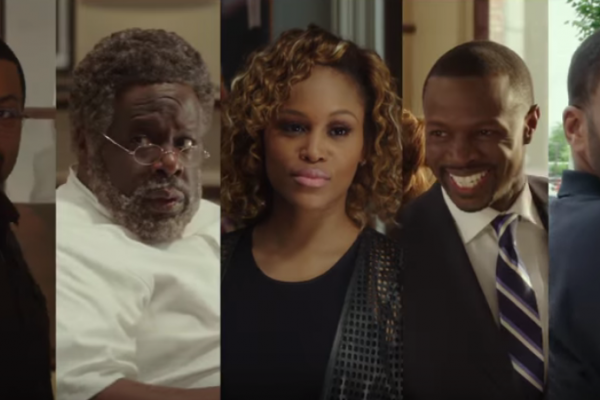The arts have always gone hand in hand with the movement for justice. From Harry Belafonte working with Rev. Dr. Martin Luther King, Jr., to the actress and legend Dorothy Dandrige speaking at civil rights rallies, all movements need creative outlets to communicate the message and motivate the masses. As a faith-based organizer working during this era of #BlackLivesMatter, I know I work in deeply serious times. But I also know that laughter can be a gift that helps us endure.
Film has always been one of the mediums of entertainment that gives me a chance to laugh, reflect, and learn about the wider world. It may come at a surprise to those who know me, but I love comedy — especially controversial comedy like that of Richard Pryor, Paul Mooney, and humanist George Carlin.
And growing up in Brooklyn with four brothers, I always knew their barbershop appointments were very important. But it wasn't until I was older that I understood that the barbershop served as a public space for black men to gather and have no-holds-barred conversations. My hair salon Imena in East Harlem is a place of solace, laughter, and pampering for me and I love talking to the owner, Tammy Williams, and her other clients about controversial topics like relationships, religion, politics, and everything in between.
My love for comedy and the communal spaces that black barber and beauty shops offer was the reason why I had to see Barbershop: The Next Cut with some of my friends last Saturday night in New York City. As promised, the controversial jokes abounded, and we laughed, but my friends and I were also challenged by seeing the characters use what was in their hands (Exodus 4:2) — their hair care skills and the space of a small black-owned business — to respond to gang violence in Chicago.
I won't give away too many spoilers, but I will say we left with a clear message about not only responding to end violence in Chicago but responding to end violence in our communities with whatever we were blessed with. Ice Cube's character reminded me of myself and my colleagues in social justice ministry who grow tired of the endless cycle of injustice inflicted by external and internal forces in our communities. This film proves that those of us who are leading in communities plagued by injustice need a circle of support — one that will not only conspire with us, but will challenge us not to unplug and give up.
The film reminded me that the solutions to our community problems are not outside of us. They are in our hands when we use what God has place there.
Got something to say about what you're reading? We value your feedback!

